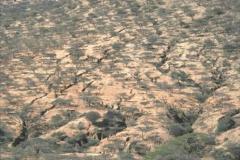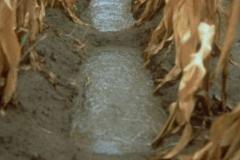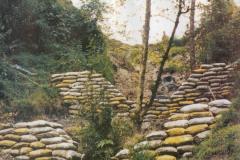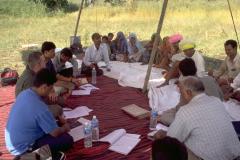World Overview of Conservation Approaches and Technologies (WOCAT)
There is a wealth of know-how related to sustainable land management (SLM), improvement of soil fertility, and protection of soil resources. Most of this valuable knowledge, however, is simply not evaluated and documented - or if it is, then it remains poorly accessible, and comparison of different types of experience is difficult. This is one of the reasons why soil degradation persists, despite decades of efforts and high investments throughout the world. In this context, WOCAT was founded in 1992 as a global network of SLM specialists.
 In the past, there has always been a strong focus on soil degradation, but documenting of SLM practices – which is much more complicated – had not yet been undertaken in a consistent way. WOCAT developed a standardised and comprehensive methodology for documentation and evaluation of SWC practices.The WOCAT methodology was originally designed to focus mainly on soil erosion and fertility decline in erosion-prone areas. However, during development and application of the methodology, other land degradation types were included. Today, WOCAT also includes other aspects of the land: soil, water, vegetation and animals.
In the past, there has always been a strong focus on soil degradation, but documenting of SLM practices – which is much more complicated – had not yet been undertaken in a consistent way. WOCAT developed a standardised and comprehensive methodology for documentation and evaluation of SWC practices.The WOCAT methodology was originally designed to focus mainly on soil erosion and fertility decline in erosion-prone areas. However, during development and application of the methodology, other land degradation types were included. Today, WOCAT also includes other aspects of the land: soil, water, vegetation and animals.
WOCAT has developed an impressive database with currently over 500 case studies on Technologies (the activities implemented in the field) and more than 250 Approaches (the strategy, or enabling environment, required to implement the technologies successfully), as well as geographic data (maps of degradation and SLM at different scales).
Early 2007 WOCAT published an attractive book with a sample set of 42 technologies and 27 approaches from all over the world. This book has served as a template for various national and regional overview books. Subsequently, WOCAT case studies from the on-line WOCAT database have been entered in Google Earth; a KMZ file has been posted on the Google Earth Community Forum under the Environment and Convervation category.
Since its initiation WOCAT has seen a shift from data collection per se to evaluation and monitoring, as well as to training and research and more recently to Decision Support.
ISRIC has been strongly involved in the project since the beginning and is a member of the WOCAT Consortium, together with seven other major international institutions. The project is coordinated by the Centre for Development and Environment (CDE) at the University of Bern, Switzerland.



